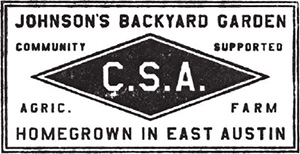
EARTH DAY FROM THE FARMER'S PERSPECTIVE
04/22/16 — Farm
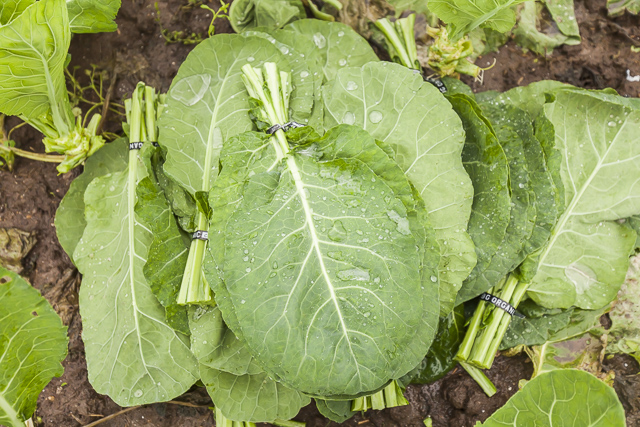 Photo by Scott David Gordon
Photo by Scott David Gordon
Happy Earth Day to everyone in the JBG community! Today, April 22nd, we're celebrating this great planet that sustains us all. Whether you buy organic and local for your health, the health of your community, or the health of the planet, today we're commending you! Let's continue to inspire and challenge each other to do everything we can to make this a healthier place to live.
Earth Day is landing after an extremely rainy and muddy week out at the farm. It's been so muddy, getting anything done outside has been very difficult -- I've even been taking time this week to reply to a ton of unanswered of emails, which, as many of the JBG staff can attest to, I rarely find the time to do. I'll admit, the rain had me feeling nervous about flooding. It was not even a year ago that huge May rainfall after a historic drought came ripping through our farm, and that was not even the only 2015 flood we endured. This week we decided to prepare and rent a pump, in case our loading dock or a particularly low area of our fields filled with water. Luckily, neither was the case this week.
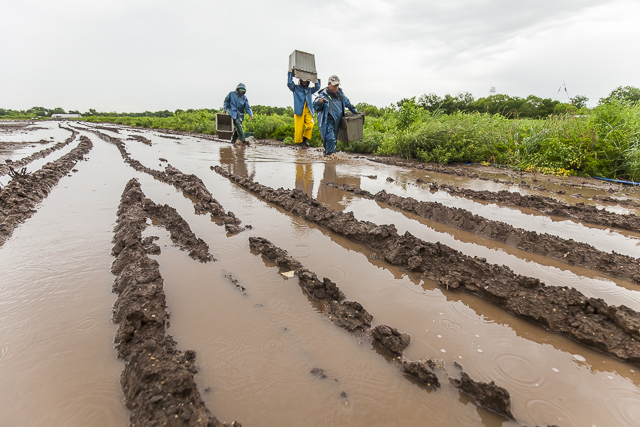 The farm was a mudpit after all the rain this week. Photo by Scott David Gordon
The farm was a mudpit after all the rain this week. Photo by Scott David Gordon
Earth Day has got me thinking about the wild weather we've experienced since I started farming - historic droughts followed by the wettest year on record since 1919. What's next? How do we prepare for an era of huge weather swings and climate change, when our jobs are directly related to the weather and climate? Agriculture depends on a stable weather pattern - we plant what we plant, when we plant it, because we think we know what kind of temperature, precipitation, and weather to expect.
The lesson for us at the farm is not to count on any one assumption about weather. We can do this by diversifying the farm. A great book for anyone interested in gardening during an uncertain period of climatic events is The Resilient Gardener, by Carol Lappe. Something she mentions over and over, is that "monoculture works best in periods of climatic stability. In periods of more erratic weather, monoculture will be riskier." As a CSA farm, we diversify by growing over 200 varieties of fruits and vegetables, not only to ensure that you get to eat a diversity of nutritious foods, but also to ensure that we'll have lots of variety for your CSA shares, despite what weather might come.
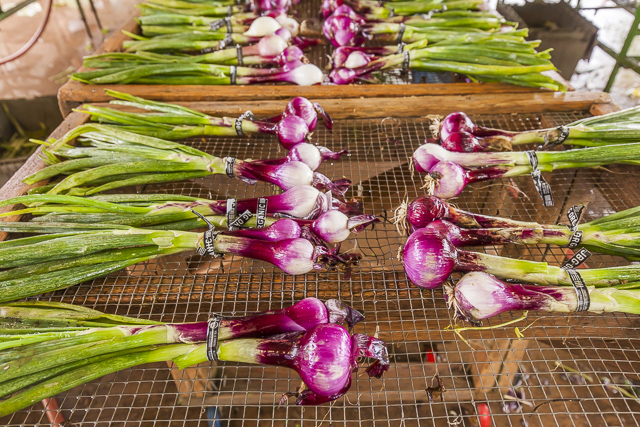 Our onions did great in this wet spring! Photo by Scott David Gordon
Our onions did great in this wet spring! Photo by Scott David Gordon
Last year, for example, the massive flooding took a toll on many of our summer crops. While we certainly still harvested tomatoes and peppers, we did not receive the abundance of a normal year due to some wild weather. Luckily, diversity provided us with a backup, and we filled CSA boxes with potatoes, purslane, onions, and storage crops we try to provide year round, like carrots and beets. Your plates were colorful and full, and we were able to make it through a tough year due to the fact that we were growing so many different crops.
So this week, as soon as these rains clear up, we're continuing to plant for summer. New Zealand and Malabar spinach , more basil and eggplants, lemongrass, and hopefully some sweet potato slips too. We're harvesting our spring crop of cabbage for markets this weekend, along with all of the greens, herbs, roots, and fruits you've been seeing over the past few weeks.
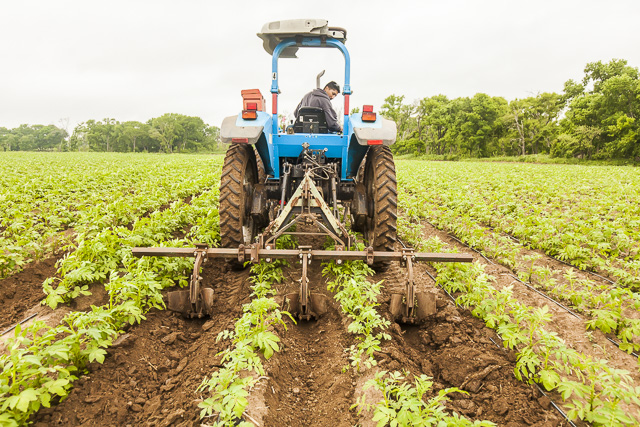 Thanks for supporting us in growing diversely and organically in Austin! Photo by Scott David Gordon
Thanks for supporting us in growing diversely and organically in Austin! Photo by Scott David Gordon
So on this Earth Day, I vow as your farmer to continue to diversify. JBG will continue to plant new varieties of vegetables every year. JBG will continue to try new growing techniques and new methods to ensure our pollinators and beneficial insects can thrive. We promise to grow organically, without using harmful chemicals that can damage the larger ecosystems which help to regulate our local and global weather patterns. We promise our farm will do what we can to keep our land productive and our waterways and communities clean.
What are you doing this Earth Day? Check out our second blog post this week for farm and food related events happening around Austin - we hope to see you around!






 0 ITEMS IN CART
0 ITEMS IN CART 
